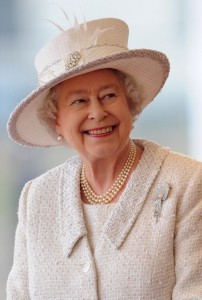 Queen Elizabeth II, 87, with Prince Philip, 92 is today in Rome fulfilling an invitation she had to reschedule in 2013 due to ill health. Last year the Queen was to meet Italy’s President Giorgio Napolitano. Her one day visit to Rome brings her to a private lunch at the presidential Quirinale Palace with the Italian President and then to have tea with Pope Francis.
Queen Elizabeth II, 87, with Prince Philip, 92 is today in Rome fulfilling an invitation she had to reschedule in 2013 due to ill health. Last year the Queen was to meet Italy’s President Giorgio Napolitano. Her one day visit to Rome brings her to a private lunch at the presidential Quirinale Palace with the Italian President and then to have tea with Pope Francis.
Tag: Pope Francis
What does the Catholic priesthood mean to you?
There are those who are very admirable ministers in the priesthood of Jesus Christ. Men who attend to a life in the Spirit. I would say that some of the newly ordained ministers are beautiful people: their heart, mind and soul clearly have the heart of the Good Shepherd. Our role, as Pope Francis has indicated below, is to call the ministers of God to truly live their vocation to fullest extent, to be united in prayer and friendship while together seeking the face of Christ.
Conversely, you and I have met deacons, priests and bishops who, after the meeting would say, “that man should never have been ordained.” Some of the newly ordained are “know it alls” and more interested in keeping the faithful accountable to some abstract authority. Then there are priests who protect the truth so rigidly that they kill the heart and dull the mind. A priest who uses his pastoral authority badly for the “sake of the Church” ought to enter into serious discernment, like that of the Prophet Samuel, before acting. How many have lost the propriety of the vocation. Scandalous behavior of the ordained is rather troubling for words.
I have to say, too many of the ordained, as a whole, are a mixed bag. We still have men ordained who don’t take their vows seriously, rarely pick up a good book of history, poetry, art, or theology, are more concerned with their day off than the zeal for the gospel, and the list goes on and on.
Sad to say, when I read Pope Francis’ catechesis today, as when I read Pope Benedict’s homilies and various addresses on the priesthood, I walked away distressed at the current state of the ministerial priesthood.
We are all sinners. We all need forgiveness. We all need to love, be loved, and to live in mercy. This Lent I am more conscious of this fact for my own conversion which is why I am hoping that the priesthood in Connecticut, indeed, the USA, will work daily on their conversion: grace only lives in Truth.
One of the many interesting points the Holy Father speaks of today is the buying and selling of the priesthood. Now, it may not be exchange of cash, but the priesthood is too often sold on the level of one’s integrity, one’s coherence, one’s sense of self, of one’s “I am” before Christ and the Church.
Are we all concerned for the sanctification of the priesthood? How passionately do you love the ordained of the Catholic Church? Are you a spiritual mother, a spiritual father for your deacons, priests and bishops? Do you intercede for them? Are you attentive to their humanity? This is our work, this is our prayer, our sacrifice, our confidence before the Eucharistic Lord and His All-Holy Mother.
Pope Francis teaches:
We have already pointed out that the three Sacraments of Baptism, Confirmation and the Eucharist constitute together the mystery of “Christian initiation,” a unique great event of grace that regenerates us in Christ. This is the fundamental vocation that unites all in the Church as disciples of the Lord Jesus. Then there are two Sacraments which correspond to two specific vocations: Holy Orders and Matrimony. They constitute two great ways through which a Christian can make of his life a gift of love, on the example and in the name of Christ, and thus cooperate in the building of the Church.
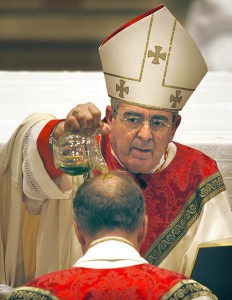 Holy Orders, articulated in the three ranks of episcopate, presbyterate and diaconate, is the Sacrament which enables the exercise of the ministry, entrusted by the Lord Jesus to the Apostles, to feed his flock, in the power of his Spirit and according to his heart. To feed Jesus’ flock not with the power of human strength or with one’s own strength, but with that of the Spirit and according to his heart, that heart of Jesus which is a heart of love. The priest, the Bishop, the deacon must feed the Lord’s flock with love. If he does not do it with love, it is useless. And in this sense, the ministers that are chosen and consecrated for this service prolong Jesus’ presence in time, if they do so with the power of the Holy Spirit in the name of God and with love.
Holy Orders, articulated in the three ranks of episcopate, presbyterate and diaconate, is the Sacrament which enables the exercise of the ministry, entrusted by the Lord Jesus to the Apostles, to feed his flock, in the power of his Spirit and according to his heart. To feed Jesus’ flock not with the power of human strength or with one’s own strength, but with that of the Spirit and according to his heart, that heart of Jesus which is a heart of love. The priest, the Bishop, the deacon must feed the Lord’s flock with love. If he does not do it with love, it is useless. And in this sense, the ministers that are chosen and consecrated for this service prolong Jesus’ presence in time, if they do so with the power of the Holy Spirit in the name of God and with love.
A first aspect. Those who are ordained are placed at the head of the community. They are “at the head” yes, but for Jesus it means to put one’s authority at the service of, as He himself showed and taught the disciples with these words: “You know that the rulers of the Gentiles lord it over them, and their great men exercise authority over them. It shall not be so among you; but whoever would be great among you must be your servant, and whoever would be first among you must be your slave; even as the Son of man came not to be served but to serve, and to give his life as a ransom for many” (Matthew 20:25-28; Mark 10:42-45). A Bishop who is not at the service of the community does no good’, a priest who is not at the service of the community does no good, he errs.
Another characteristic that always derives from this sacramental union with Christ is “passionate love for the Church. We think of that passage in the Letter to the Ephesians in which Saint Paul says that Christ “loved the Church and gave himself up for her, that he might sanctify her, having cleansed her by the washing of water with the word, that he might present the Church to himself in splendor, without spot or wrinkle or any such thing” (5:25-27). In virtue of Holy Orders the minister dedicates his whole self to his community and loves it with all his heart: it is his family. The Bishop and the priest love the Church in their community, they love her intensely. How? As Christ loves the Church. Saint Paul says the same about matrimony: the husband loves his wife as Christ loves the Church. It is a great mystery of love: this priestly ministry and that of matrimony, two Sacraments that are the way by which persons usually go to the Lord.
A last aspect. The Apostle Paul recommends to his disciple Timothy not to neglect, but rather to revive always the gift that is in him. The gift that was given to him for the imposition of hands (cf. 1 Timothy 4:14; 2 Timothy 1:6). When the ministry is not nourished — the ministry of the Bishop, the ministry of the priest –, with prayer, with listening to the Word of God, and with the daily celebration of the Eucharist and also with the frequentation of the Sacrament of Penance, one ends inevitably by losing sight of the authentic meaning of one’s service and the joy that stems from profound communion with Jesus.
The Bishop who does not pray, the Bishop who does not listen to the Word of God, who does not celebrate Mass every day, who does not go regularly to Confession, and the same for a priest who does not do these things, in the long run lose their union with Jesus and become a mediocrity which does no good to the Church. Therefore, we must help Bishops and priests to pray; to listen to the Word of God, which is the daily meal; to celebrate the Eucharist every day and to go to Confession regularly. This is so important because it concerns in fact the sanctification of the Bishops and priests.
I would like to end with something that comes to mind: but what must one do to become a priest? Where is access to the priesthood sold? No. It is not sold. This is an initiative that the Lord takes. The Lord calls. He calls each one that He wishes to become a priest. Perhaps there are here some young men who have felt this call in their heart, the wish to become a priest, the wish to serve others in the things that come from God, the wish to spend their whole life in service to catechize, baptize, forgive, celebrate the Eucharist, take care of the sick … and spend their whole life in this way. If one of you has felt this thing in his heart it is Jesus who has put it there. Take care of this invitation and pray that it will grow and bear fruit in the whole Church.
A synopsis:
In our catechesis on the sacraments, we now turn to the sacrament of Holy Orders. Building on the vocation received in the sacraments of Christian initiation – Baptism, Confirmation and the Eucharist – the sacraments of Holy Orders and Matrimony correspond to two specific vocations and are two ways of following Christ and building up his Church. Holy Orders, in its three grades of bishop, priest and deacon, is the sacrament of pastoral ministry. Jesus entrusted his Apostles with the care of his flock and in every age the ordained make present in the Christian community the one Shepherd who is Christ. Following the Lord’s own example, they lead the community as its servants. Theirs must be lives of passionate love for the Church for whose purification and holiness the Lord gave himself completely, and they must constantly renew the grace and joy of their ordination through prayer, penance, and daily celebration of the Eucharist. Today, let us pray for all the Church’s ministers, especially those most in need of our prayers, and ask the Lord always to grant his Church holy, generous and merciful pastors after his own heart.
Theme for Pope’s visit to Holy Land set as Ut unum sint
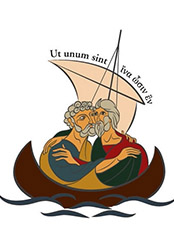 The Holy Father is making a pilgrimage this May 24-26. The Assembly of Catholic Ordinaries of the Holy Land held a planning meeting in Tiberias where they settled on a theme and logo for Francis and the ecumenical as Ut unum sint. The logo (seen here) shows the embrace of Saints and Apostles Peter and Andrew. The two are known as the first-called by Jesus in Galilee, patrons respectively of the Church of Rome and the Church of Constantinople.
The Holy Father is making a pilgrimage this May 24-26. The Assembly of Catholic Ordinaries of the Holy Land held a planning meeting in Tiberias where they settled on a theme and logo for Francis and the ecumenical as Ut unum sint. The logo (seen here) shows the embrace of Saints and Apostles Peter and Andrew. The two are known as the first-called by Jesus in Galilee, patrons respectively of the Church of Rome and the Church of Constantinople.
The news was announced by Terra Sancta.
This is not merely a “trip” but a pilgrimage. The distinction focuses attention to the spiritual and fraternal aspects of being present in a particular place for a particular reason.
Pope Francis and Patriarch Bartholomew will meet in the Basilica of the Holy Sepulchre in order to commemorate and renew the yearning for unity among Christians. The meeting recalls a similar meeting 50 years ago of Pope Paul VI and Patriarch Athenagoras in Jerusalem.
Pope Francis goes undercover to reform Curia
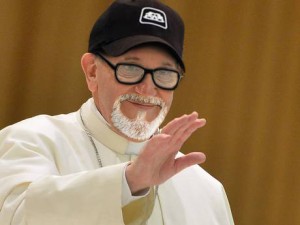 The news from the Holy See is so secretive that a year ago Pope Francis thought he needed to find out for himself to what extent the Roman Curia needed reform. Only now are we able to reveal the pontifical secret. The bishop of Rome did the unusual: he went undercover. Apparently, Francis has caught the eye of the acclaimed show whose executives at CBS confirmed “that Chief Executive Officer of The One, Holy, Catholic, and Apostolic Church Pope Francis would be appearing in … the hit television show Undercover Boss.”
The news from the Holy See is so secretive that a year ago Pope Francis thought he needed to find out for himself to what extent the Roman Curia needed reform. Only now are we able to reveal the pontifical secret. The bishop of Rome did the unusual: he went undercover. Apparently, Francis has caught the eye of the acclaimed show whose executives at CBS confirmed “that Chief Executive Officer of The One, Holy, Catholic, and Apostolic Church Pope Francis would be appearing in … the hit television show Undercover Boss.”
We know he prefers an alias, so anything is possible for the CEO of the Catholic Church to do his own investigation of the workings –or, not– of the Roman Curia. Watch the show to see who Bishop of Rome sends on vacation.
Pope Francis gives interview to Corriere della Sera
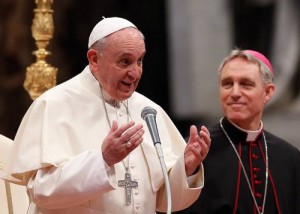 On March 5, 2014, Ferruccio de Bortoli conducted an interview published in Corriere della Sera, with Pope Francis about his first year at the head of the Church.
On March 5, 2014, Ferruccio de Bortoli conducted an interview published in Corriere della Sera, with Pope Francis about his first year at the head of the Church.
Papal interviews are helpful because they further explicate the petrine ministry. Plenty of people, however, on both sides of the theological fence, who are nervous about the way the Holy Father makes decisions. I think it is fair to say that Pope Francis does not engage the “issues” at hand in the same way as Pope Benedict and Pope John Paul before him. It is obvious to say this because of the differences in the way each person engages the mind and heart. Pope Francis takes a few more risks in speaking to the public in his off-the-cuff process, he’s going to the periphery of thinking. There are distinct times that what the Holy Father said is clearly twisted by the opponents of the Church. Several politicians and public intellectuals come to mind; and there is a number of clergymen who have done so.
On the issue of the way Pope Francis aims at making decisions can be seen in what Jesuit Father Antonio Spadaro, an interviewer of the Pope back in August 2013. Edward Pentin of the National Catholic Register brings out that the Holy Father makes decisions by discernment. Father Spadaro said,
Pope Francis’ way of making decisions, because it’s very Jesuitical. He speaks in a very Jesuitical language, so we have to explain it. He doesn’t make decisions balancing reasons. He makes decisions by discernment, so praying and trying to feel the Spirit, trying to be inspired, balancing the emotions of the spirit, not reason or logic. It’s a completely different way of proceeding, a different way of thinking. So I explain what this means in the book.
Also, Pope Francis talks briefly about his decision-making manner. Keeping in mind what Spadaro said, here is an English translation of the Corriere della Sera:
One year has gone by since that simple “good evening” that moved the world. The lapse of 12 very intense months is not able to contain the great mass of Francis’ novelties and profound signs of pastoral innovation. We are in a small room in Saint Martha’s. The only window looks out onto a courtyard that opens a minuscule angle of blue sky. The Pope appears suddenly through a door, with a relaxed and smiling face. He is amused by the various recording devices that the senile anxiety of the journalist placed on the table. “Do they all work? Yes? Thank goodness.” The assessment of this year? No, he doesn’t like assessments. “I only do an assessment every 15 days, with my confessor.”
Holy Father, every now and then you call on the telephone those who ask you for help. And sometimes, do they not believe it’s you?
Holy Father: Yes, it’s happened to me. When someone calls it’s because he wants to talk, has a question to ask, advice to request. When I was a priest in Buenos Aires it was easier. And I have kept that custom. It’s a service, it is expressed like that. But it’s true that now it’s not so easy to do, given the quantity of people who write to me.
Do you remember any one of those contacts with particular affection?
Holy Father: An 80-year-old widow who had lost her son wrote to me. And now I give her a call once a month. She is delighted. I do the [role of a] priest. I like it.
In regard to your relations with your predecessor, Benedict XVI, have you ever asked him for advice?
Holy Father: Yes, the Pope Emeritus isn’t a museum statue. It’s an institution we’re not used to. Sixty or seventy years ago, the figure of the Bishop Emeritus didn’t exist. That came after Vatican Council II and now it’s an institution. The same has to happen with the Pope Emeritus. Benedict is the first and perhaps there will be others. We don’t know that. He is discreet, humble, he doesn’t want to bother. We spoke about it and together we came to the conclusion that it would be better if he saw people, that he come out and participate in the life of the Church. Once he came here on the occasion of the blessing of the statue of Saint Michael the Archangel, then for a lunch in Saint Martha’s and, after Christmas, I returned the invitation to participate in the Consistory and he accepted. His wisdom is a gift of God. Some would have liked him to retire to a Benedictine Abbey far from the Vatican. And then I thought of grandparents, who with their wisdom and advice give strength to the family and do not deserve to end in a retirement home.
We think that your way of governing the Church is like this: you listen to everyone and then you decide alone – somewhat like the Father General of the Jesuits. Is the Pope a man who is alone?
Holy Father: Yes and no, but I understand what you wish to say to me. The Pope is not alone in his work because he is supported by the advice of many. And he would be a man alone if he decided not to listen to anyone or to pretend that he listened. However, there is a moment when one must decide, when one must sign, in which he remains alone with his sense of responsibility.
You have innovated, criticized some attitudes of the clergy. You have revolutionized the Curia, with some resistance and opposition. Has the Church already changed as you wished a year ago?
Holy Father: Last March I had no plan to change the Church. I was not expecting, let’s put it this way, this transfer of diocese. I began to govern, trying to put into practice everything that had emerged in the debate among the Cardinals of the different Congregations. And in my actions I hope to count on the Lord’s inspiration. I’ll give you an example: there has been talk of the spiritual situation of people who work in the Curia, and then they started to make spiritual retreats. More importance should be given to annual Spiritual Exercises. All have a right to spend five days in silence and meditation, whereas before in the Curia they listened to three homilies a day and then some continued working.
Are tenderness and mercy the essence of your pastoral message?
Holy Father: And of the Gospel. They are the heart of the Gospel. Otherwise, one doesn’t understand Jesus Christ, or the tenderness of the Father who sends Him to listen to us, to cure us, to save us.
But was this message understood? You said that the “Francis mania” wouldn’t last long. Is there something of your public image that you don’t like?
Holy Father: I like to be among the people, with those who suffer, and to go to the parishes. I don’t like ideological interpretations, a certain mythology of Pope Francis. When it is said, for instance, that I go out from the Vatican at night to feed beggars on Via Ottaviano – I would never even think of it. Sigmund Freud said, if I’m not mistaken, that in all idealization there is an aggression. To paint the Pope as if he is a sort of Superman, a sort of star, I find offensive. The Pope is a man who laughs, cries, sleeps peacefully and has friends like everyone else. He is a normal person.
Do you have nostalgia for your Argentina?
Holy Father: The truth is that I have no nostalgia. I would go to visit my sister, who is sick, the last of five of us. I’d love to see her, but this does not justify a trip to Argentina: to call by phone, that is enough. I do not think I’ll go before 2016, because I have already been to Latin America, to Rio. Now I have to go to the Holy Land, to Asia, and then to Africa.
You have just renewed your Argentine passport. You are still a head of state.
Holy Father: I renewed it because it had expired.
Were you annoyed that they accused you of being Marxist, especially in the United States, after the publication of “Evangelii Gaudium”?
Holy Father: Not at all. I never shared the Marxist ideology because it’s false, but I knew many good persons who professed Marxism.
The scandals that perturbed the life of the Church fortunately are now in the past. On the delicate topic of the abuse of minors, philosophers Besancon and Scruton among others, asked you to raise your voice against fanaticism and the bad faith of the secularized world that doesn’t respect childhood much.
Holy Father: I wish to say two things. The cases of abuse are terrible because they leave very profound wounds. Benedict XVI was very courageous and opened the way. And, following that way, the Church advanced a lot, perhaps more than anyone. The statistics on the phenomenon of violence against children are shocking, but they also show clearly that the great majority of the abuses come from the family environment and from people who are close. The Catholic Church is perhaps the only public institution that moved with transparency and responsibility. No one else did as much. And yet, the Church is the only one being attacked.
You say that “the poor evangelize us.” The attention given to poverty, the strongest mark of your message, is taken by some observers as a profession of pauperism. The Gospel doesn’t condemn wealth. And Zacchaeus was rich and charitable.
Holy Father: The Gospel condemns the worship of wealth. Pauperism is one of the critical interpretations. In the Medieval Age there were many pauperist currents. St. Francis [of Assisi] had the genius of placing the subject of poverty in the evangelical journey. Jesus says that one cannot serve two masters, God and money. And when we are judged at the end of time (Matthew, 25), we will be asked about our closeness to poverty. Poverty removes us from idolatry and opens the doors to Providence. Zacchaeus gives half of his wealth to the poor. And those whose barns are full of their own egoism, the Lord, at the end, will call to account. I think I expressed well my thought on poverty in “Evangelii Gaudium.”
You identify in globalization, especially financial, some of the evils that humanity suffers. However, globalization brought millions of people out of poverty. It brought hope, a rare sentiment that must not be confused with optimism.
Holy Father: It’s true, globalization saved many people from misery, but it condemned many others to die of hunger, because with this economic system it becomes selective. The globalization that the Church thinks of does not look like a sphere in which every point is equidistant from the center and in which, therefore, the particularity of peoples is lost. It is, rather, a polyhedron, with its different facets, in which each nation keeps its own culture, language, religion, identity. The present “spherical” economic globalization, especially the financial, produces one thought, a weak thought. And the human person is no longer at its center but only money.
The subject of the family is central for the activity of the Council of Eight Cardinals. Since John Paul II’s Exhortation “Familiaris Consortio”, many things have changed. Great novelties are expected. And you said that divorced persons must not be condemned – that they must be helped.
Holy Father: It is a long path that the Church must complete, a process that the Lord wants. Three months after my election, I was submitted the topics for the Synod, and we decided to discuss what Jesus’ contribution is to contemporary man. However, at the end – which for me is a sign of the will of God — we decided to discuss the family, which is going through a very serious crisis. It’s difficult to form a family. Young people no longer get married. There are many separated families, whose common life plan failed. The children suffer a lot. And we have to give an answer. However, we have to reflect a lot on this, and in depth. This is what the Consistory and the Synod are doing. We must avoid staying on the surface of the topic. The temptation to resolve each problem with casuistry is an error, a simplification of profound things. It’s what the Pharisees did: a very superficial theology. And it is in the light of this profound reflection that particular situations will be able to be addressed seriously, also that of the divorced.
Why did Cardinal Walter Kasper’s report in the last Consistory (an abyss between the doctrine on marriage and the family and the real life of many Christians) generate so much division among the Cardinals? Do you think that the Church will be able to go through these two years of toilsome journey to come to a broad and serene consensus?
Holy Father: Cardinal Kasper made a beautiful and profound presentation, which will soon be published in German, in which he addresses five points, the fifth of which is that of second marriages. I would have been more worried if there hadn’t been an intense discussion in the Consistory, because it would have been useless. The Cardinals knew that they could say what they wanted, and they presented different points of view, which are always enriching. Open and fraternal debate makes theological and pastoral thought grow. That doesn’t frighten me. What’s more, I look for it.
In the recent past, it was customary to refer to “non-negotiable values,” especially on questions of bioethics and sexual morality. You haven’t used that formula. Is that choice a sign of a less prescriptive style, more respectful of individual conscience?
Holy Father: I never understood the expression “non-negotiable values.” Values are values and that’s that. I can’t say which of the fingers of the hand is more useful than the rest, so I don’t understand in what sense there could be negotiable values. What I had to say on the topic of life I have put in writing in “Evangelii Gaudium.”
Many countries have regulated civil unions. Is it a path that the Church can understand? But up to what point?
Holy Father: Marriage is between one man and one woman. The secular States want to justify civil unions to regulate different situations of coexistence, spurred by the need to regulate economic aspects between persons as, for instance, to ensure healthcare. Each case must be looked at and evaluated in its diversity.
How will the role of women be promoted within the Church?
Holy Father: Casuistry doesn’t help in this case either. It’s true that women can and must be more present in decision-making posts of the Church. But I would call this a promotion of a functional type. And with that alone, one doesn’t advance much. Rather, we must think that the Church has the feminine article, “la”: it is feminine by origin. Theologian Urs von Balthasar worked a lot on this topic: the Marian principle guides the Church by the hand of the Petrine principle. The Virgin is more important than any Bishop and any of the Apostles. The theological reflection is already underway. Cardinal [Stanislaw] Rylko [president of the Pontifical Council for the Laity], together with the Council of the Laity, is working in this direction with many expert women.
Half a century after Paul VI’s encyclical “Humanae Vitae,” can the Church take up again the topic of birth control? Your confrere, Cardinal [Carlo Maria] Martini [the late Archbishop of Milan] believed it was now time.
Holy Father: It all depends on how the text of “Humanae Vitae”is interpreted. Paul VI himself, towards the end, recommended to confessors much mercy and attention to concrete situations. But his genius was prophetic, as he had the courage to go against the majority, to defend moral discipline, to apply a cultural brake, to oppose present and future neo-Malthusianism. The object is not to change the doctrine, but it is a matter of going into the issue in depth and to ensure that the pastoral ministry takes into account the situations of each person and what that person can do. This will also be discussed on the path to the Synod.
Science evolves and redraws the ends of life. Does it make sense to prolong life in a vegetative state?
Holy Father: I’m not a specialist on bioethical arguments, and I’m afraid of being mistaken in my words. The Church’s traditional doctrine states that no one is obliged to use extraordinary methods when someone is in his terminal phase. Pastorally, in these cases I have always advised palliative care. On more specific cases, should it be necessary, it’s appropriate to seek the advice of specialists.
Will your trip to the Holy Land lead to an agreement of intercommunion with the Orthodox that Paul VI, fifty years ago, almost signed with [Patriarch] Athenagoras?
Holy Father: We are all impatient about achieving “sealed” results. But the path of unity with the Orthodox means above all walking and working together. In Buenos Aires, several Orthodox came to the catechetical courses. I usually spent Christmas and 6 January together with their bishops, who sometimes even asked the advice of our diocesan offices. I do not know if the story is true that Athenagoras told Pope Paul VI that he proposed that they walk together and send all the theologians to an island to discuss among themselves. It’s a joke, but it is important that we walk together. Orthodox theology is very rich. And I believe that they have, at this time, great theologians. Their vision of the Church and collegiality is marvelous.
In a few years the greatest world power will be China with which the Vatican has no relations. Matteo Ricci was a Jesuit like you.
Holy Father: We are close to China. I sent a letter to President Xi Jinping when he was elected, three days after me. And he answered me. The relationships are there. They are a great people whom I love.
Why, Holy Father, do you never speak about Europe? What is it about the European project that does not convince you?
Holy Father: Do you remember the day when I spoke of Asia? What did I say? (Here the reporter ventures to give some explanation, collecting vague memories only to realize that he had fallen for a nice trick). I have not spoken about Asia, or Africa, or Europe. Only about Latin America when I was in Brazil, and when I had to receive the Commission for Latin America. There hasn’t yet been a chance to talk about Europe. It will come.
What book are you reading these days?
Holy Father: ‘Peter and Magdalene’ by Damiano Marzotto on the feminine dimension of the Church. A beautiful book.
And you’re not able to see any good films, another of your passions? “La Grande Bellezza” won an Oscar. Will you see it?
Holy Father: I don’t know. The last movie I saw was Benigni’s ‘Life is Beautiful’. And before I had seen Fellini’s ‘La Strada’. A masterpiece. I also liked Wajda…
St. Francis had a carefree youth. I ask you: have you ever been in love?
Holy Father: In the book The Jesuit, I recount when I had a girlfriend at the age of 17. And I mention it also Heaven and Earth, the volume that I wrote with Abraham Skorka. In the seminary, a girl made my head spin for a week.
And if you do not mind me asking, how did it end?
Holy Father: They were things of youth. I spoke with my confessor about it [a big smile].
Thank you Holy Father.
Holy Father: Thank you.
NB: A CNS image by Paul Harring
Blessed First Anniversary to Pope Francis
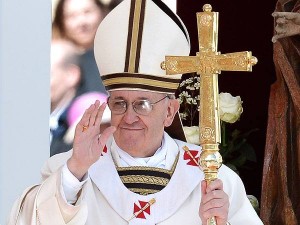 V. Let us pray for Francis, the Pope.
V. Let us pray for Francis, the Pope.
R. May the Lord preserve him, give him a long life, make him blessed upon the earth, and may the Lord not hand him over to the power of his enemies.
V. May your hand be upon your holy servant.
R. And upon your son whom you have anointed.
Let us pray. O God, the Pastor and Ruler of all the faithful, look down, in your mercy, upon your servant, Francis, whom you have appointed to preside over your Church; and grant, we beseech you, that both by word and example, he may edify all those under his charge; so that, with the flock entrusted to him, he may arrive at length unto life everlasting.
Through Christ our Lord.
R. Amen.
Does the flock space in the bishop’s heart?
Yesterday (27 Feb 2014), the Holy Father met with the Congregation for Bishops for a what think sets a significant direction how the Church receives new bishops and how existing bishops live their vocation. One aspect the Pope’s talk addressed was the presence of a bishop in the diocese to which he is married. Far too often bishops find themselves doing much-too-much traveling for committee work in other places. The Holy Father said,
The Second Vatican Council states that to the Bishops “is fully entrusted the pastoral office, that is the habitual and daily care of their flock” (Lumen Gentium, 27). We must dwell more on these two descriptions of the care of the flock: habitual and daily. In our time assiduity and habituality are often associated with daily routine and boredom. So often we try to escape to a permanent “elsewhere.” This is a temptation for Shepherds, for all pastors! The spiritual fathers must explain it well, so that we understand it and will not fall. Even in the Church, unfortunately, we are not exempt from this risk. Therefore, it is important to reiterate that the mission of the Bishop requires habituality and daily dedication. I think that in this age of meetings and conferences the decree of the Council of Trent on residency is so up-to-date: it is so up-to-date and it would be nice if the Congregation for Bishops wrote something about this. The flock need to find space in the heart of the Shepherd. If he is not firmly anchored within himself, in Christ and in his Church, he will be constantly buffeted by the waves in search of ephemeral compensation and will not offer any shelter to the flock.
Francis
Address to the Congregation for Bishops, excerpt
February 27, 2014
Several things Pope Francis said in his address to the Congregation for Bishops bears knowing and reflecting upon for the laity as well as the clergy. For the record the Pope speaks from personal experience as a former auxiliary and residential bishop. He knows the first hand the tensions of serving the greater Church and the one he’s been ordained to serve.
His Holiness is drawing our attention back to the Council of Trent which required a diocesan bishop to spend 11 of the 12 months a year in their diocese. While the Pope is right he is also helping some diocesan bishops to spend lots of time in Rome—namely the Council of Cardinals are a good example of spending lots of time away from their habitual and daily duties. Another great example of bishops wasting time is the ungodly amount of time is the US Conference of Catholic Bishops. The USCCB is generally speaking, too expensive to justify and it is an organization that basically is a bureaucracy: endless committee meetings which distract too many bishops from doing what they’ve been called to do in their dioceses. The work of a bishop teaching, sanctify and pastoring souls requires their concrete presence. They ought to stay home. But there are times being outside the diocese is a good thing for a greater good yet knowing when and for what is key. For example, it would be a shame if Cardinal George did not teach in various places. Recently, however, the local ordinary was not present for the annual Pro Life Mass because he was attending to a committee meeting. Too often the faithful have to suffer with communication for the vice chancellor versus having direct communication from the bishop. We do not want third ad fourth tier leaders, we expect the first tier because that is what Christ expects, and what Mother Church demands.
One line that sticks out in my mind: “The flock need to find space in the heart of the Shepherd.” I hope the bishops keep this their mind, too. Thus far, it is hard to see that really happening soon.
Pope to Notre Dame: give unambiguous testimony to the Christ
Earlier today Pope Francis spoke to a large delegation from the University of Notre Dame. I think my alma mater can follow what the Pope is aiming at… don’t you think? In reading this address I am thinking and hoping that the UND does not explain away what the Pope really means.
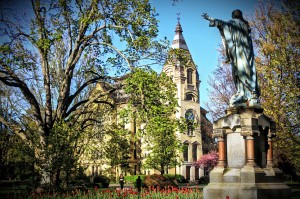 I am pleased to greet the Trustees of Notre Dame University on the occasion of your meeting in Rome, which coincides with the inauguration of the University’s Rome Center. I am confident that the new Center will contribute to the University’s mission by exposing students to the unique historical, cultural and spiritual riches of the Eternal City, and by opening their minds and hearts to the impressive continuity between the faith of Saints Peter and Paul, and the confessors and martyrs of every age, and the Catholic faith passed down to them in their families, schools and parishes. From its founding, Notre Dame University has made an outstanding contribution to the Church in your country through its commitment to the religious education of the young and to serious scholarship inspired by confidence in the harmony of faith and reason in the pursuit of truth and virtue. Conscious of the critical importance of this apostolate for the new evangelization, I express my gratitude for the commitment which Notre Dame University has shown over the years to supporting and strengthening Catholic elementary and secondary school education throughout the United States.
I am pleased to greet the Trustees of Notre Dame University on the occasion of your meeting in Rome, which coincides with the inauguration of the University’s Rome Center. I am confident that the new Center will contribute to the University’s mission by exposing students to the unique historical, cultural and spiritual riches of the Eternal City, and by opening their minds and hearts to the impressive continuity between the faith of Saints Peter and Paul, and the confessors and martyrs of every age, and the Catholic faith passed down to them in their families, schools and parishes. From its founding, Notre Dame University has made an outstanding contribution to the Church in your country through its commitment to the religious education of the young and to serious scholarship inspired by confidence in the harmony of faith and reason in the pursuit of truth and virtue. Conscious of the critical importance of this apostolate for the new evangelization, I express my gratitude for the commitment which Notre Dame University has shown over the years to supporting and strengthening Catholic elementary and secondary school education throughout the United States.
The vision which guided Father Edward Sorin and the first religious of the Congregation of Holy Cross in establishing the University of Notre Dame du Lac remains, in the changed circumstances of the twenty-first century, central to the University’s distinctive identity and its service to the Church and American society. In my Exhortation on the Joy of the Gospel, I stressed the missionary dimension of Christian discipleship, which needs to be evident in the lives of individuals and in the workings of each of the Church’s institutions. This commitment to “missionary discipleship” ought to be reflected in a special way in Catholic universities (cf. Evangelii Gaudium, 132-134), which by their very nature are committed to demonstrating the harmony of faith and reason and the relevance of the Christian message for a full and authentically human life. Essential in this regard is the uncompromising witness of Catholic universities to the Church’s moral teaching, and the defense of her freedom, precisely in and through her institutions, to uphold that teaching as authoritatively proclaimed by the magisterium of her pastors. It is my hope that the University of Notre Dame will continue to offer unambiguous testimony to this aspect of its foundational Catholic identity, especially in the face of efforts, from whatever quarter, to dilute that indispensable witness. And this is important: its identity, as it was intended from the beginning. To defend it, to preserve it and to advance it!
Dear friends, I ask you to pray for me as I strive to carry out the ministry which I have received in service to the Gospel, and I assure you of my prayers for you and for all associated with the educational mission of Notre Dame University. Upon you and your families, and in a particular way, upon the students, faculty and staff of this beloved University, I invoke the Lord’s gifts of wisdom, joy and peace, and cordially impart my Blessing.
Papa Francesco a rock star?
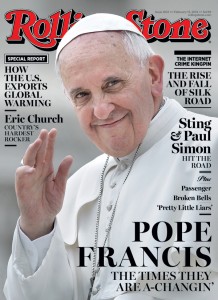 Papa Francesco made the cover of Rolling Stone. Here is Mark Binelli’e article, “Pope Francis: The Times They Are A-Changin’”
Papa Francesco made the cover of Rolling Stone. Here is Mark Binelli’e article, “Pope Francis: The Times They Are A-Changin’”
As a priest friend said, the Pope is a rock star…
The symphony (or cacophony?) about the papacy of Francis thus far is rather interesting to my way thinking. Too many like the perceived liberal stances of the pontiff and few have really taken the time to do the hard work to know what he says, means and hopes. Most of what we read is predictable, even fatuous.
In the wake of Benedict’s abdication almost a year ago, there’s still an inadequate assessment of the person and work of Benedict as the Father of the Catholic Church. I actually, I am beginning to resent the these commenters who raise up one pope and degrade another in the same breadth without knowing much. But the media people are not the only ones who have a problem with Benedict, some closely connected with the Catholic Church, laity and clergy alike, still feel the need to take gratuitous swipes at the former pontiff, having not paid too much attention to what he did and taught, how he did it, and why he did it. I really wonder how much of Benedict these people have personally read.
Francis needs to be read in the context of a parish priest, not as a scholar-pastor Benedict was.
Christ cannot be divided, Pope urges
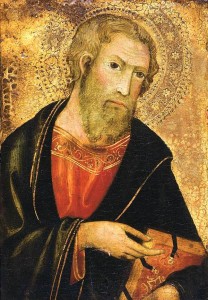 At Solemn Vespers for the Solemnity of the Conversion of Saint Paul this evening, Pope Francis preached the following homily at the Basilica of St Paul outside the Walls.
At Solemn Vespers for the Solemnity of the Conversion of Saint Paul this evening, Pope Francis preached the following homily at the Basilica of St Paul outside the Walls.
“Has Christ been divided?” (1 Cor 1:13). The urgent appeal which Saint Paul makes at the beginning of his First Letter to the Corinthians, and which has been proclaimed at this evening’s liturgy, was chosen by a group of our fellow Christians in Canada as the theme for our meditation during this year’s Week of Prayer.
The Apostle was grieved to learn that the Christians of Corinth had split into different factions. Some claimed: “I belong to Paul”; while others claimed: “I belong to Apollos” or “I belong to Cephas”, and others yet claimed: “I belong to Christ” (cf. v. 12). Paul could not even praise those who claimed to belong to Christ, since they were using the name of the one Savior to set themselves apart from their other brothers and sisters within the community. In other words, the particular experience of each individual, or an attachment to certain significant persons in the community, had become a yardstick for judging the faith of others.
Amid this divisiveness, Paul appeals to the Christians of Corinth “by the name of our Lord Jesus Christ” to be in agreement, so that divisions will not reign among them, but rather a perfect union of mind and purpose (cf. v. 10). The communion for which the Apostle pleads, however, cannot be the fruit of human strategies. Perfect union among brothers and sisters can only come from looking to the mind and heart of Christ Jesus (cf. Phil 2:5). This evening, as we gather here in prayer, may we realize that Christ, who cannot be divided, wants to draw us to himself, to the sentiments of his heart, to his complete and confident surrender into the hands of the Father, to his radical self-emptying for love of humanity. Christ alone can be the principle, the cause and the driving force behind our unity.
As we find ourselves in his presence, we realize all the more that we may not regard divisions in the Church as something natural, inevitable in any form of human association. Our divisions wound Christ’s body, they impair the witness which we are called to give to him before the world. The Second Vatican Council’s Decree on Ecumenism, appealing to the text of Saint Paul which we have reflected on, significantly states: “Christ the Lord founded one Church and one Church only. However, many Christian communities present themselves to people as the true inheritance of Jesus Christ; all indeed profess to be followers of the Lord but they differ in outlook and go their different ways, as if Christ were divided”. And the Council continues: “Such division openly contradicts the will of Christ, scandalizes the world, and damages the sacred cause of preaching the Gospel to every creature” (Unitatis Redintegratio, 1).
Christ, dear friends, cannot be divided! This conviction must sustain and encourage us to persevere with humility and trust on the way to the restoration of full visible unity among all believers in Christ. Tonight I think of the work of two great Popes: Blessed John XXIII and Blessed John Paul II. In the course of their own lives, both came to realize the urgency of the cause of unity and, once elected to the See of Peter, they guided the entire Catholic flock decisively on the paths of ecumenism. Pope John blazed new trails which earlier would have been almost unthinkable. Pope John Paul held up ecumenical dialogue as an ordinary and indispensable aspect of the life of each Particular Church. With them, I think too of Pope Paul VI, another great promoter of dialogue; in these very days we are commemorating the fiftieth anniversary of his historic embrace with the Patriarch Athenagoras of Constantinople.
The work of these, my predecessors, enabled ecumenical dialogue to become an essential dimension of the ministry of the Bishop of Rome, so that today the Petrine ministry cannot be fully understood without this openness to dialogue with all believers in Christ. We can say also that the journey of ecumenism has allowed us to come to a deeper understanding of the ministry of the Successor of Peter, and we must be confident that it will continue to do so in the future. As we look with gratitude to the progress which the Lord has enabled us to make, and without ignoring the difficulties which ecumenical dialogue is presently experiencing, let us all pray that we may put on the mind of Christ and thus progress towards the unity which he wills.
In this climate of prayer for the gift of unity, I address a cordial and fraternal greeting to His Eminence Metropolitan Gennadios, the representative of the Ecumenical Patriarch, and to His Grace David Moxon, the personal representative in Rome of the Archbishop of Canterbury, and to all the representatives of the various Churches and Ecclesial Communities gathered here this evening.
Dear brothers and sisters, let us ask the Lord Jesus, who has made us living members of his body, to keep us deeply united to him, to help us overcome our conflicts, our divisions and our self-seeking, and to be united to one another by one force, by the power of love which the Holy Spirit pours into our hearts (cf. Rom 5:5). Amen.